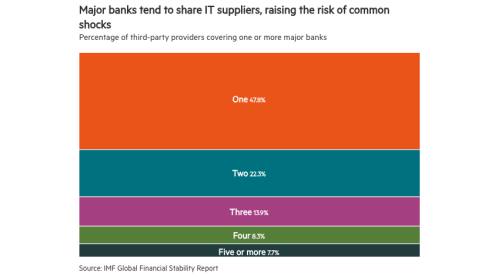Fossil fuel financing from the world’s 60 largest banks has reached $5.5tn in the seven years since the adoption of the Paris Agreement in 2015, according to the Banking on Climate Chaos 2022 report.
The annual report, published by a group of non-profit organisations, highlights how fossil fuel financing plateaued in 2020, rebounded in 2021, and levelled out the following year.
The majority of bank fossil fuel financing over the past six years came in the form of bond and equity underwriting, rather than lending.
Fossil fuel financing was dominated by four US banks – JPMorgan Chase, Citi, Wells Fargo and Bank of America – who together account for 25% of all fossil fuel financing since 2015.
The report suggests that banks could be doing more to align with global climate commitments. Of the 60 banks taken into account, 59 do not have policies robust enough to meet the goal of keeping global warming below 1.5°C.
Bank policies contain loopholes that still leave them exposed to climate risk. For example, underwriting bonds and equities accounted for 36% of all fossil fuel financing, though major banks exclude these activities from their fossil fuel policies.
Most of the banks considered in the analysis are members of the Net-Zero Banking Alliance but, the report notes, the banks’ “net zero” targets are often too low, leave controversial portfolios unaddressed, and rely heavily on carbon offsets technologies such as carbon capture and storage.
Some banks, however, are making progress. France’s La Banque Postale has set the standard for oil and gas policies, publishing in 2021 a commitment to end financing for all companies expanding oil and gas, and exit the sector completely by 2030. Crédit Agricole and Nordea Bank have made similar commitments on coal.







